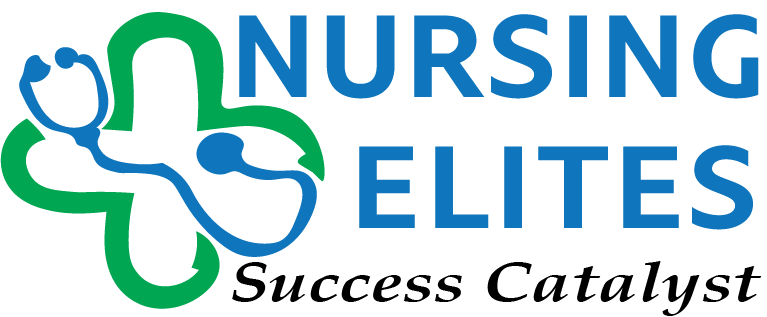Data from the American Association of Colleges of Nursing shows a steady decline in students joining various nursing colleges. Despite the dip, nursing schools still dismiss thousands of applicants, citing staffing shortages and increased dropout rates. What classes do nurses take in college is a vital question every nursing school applicant should ask, especially when deciding between nursing and other career fields. Our nursing experts explain the various degree programs in nursing schools and the core classes each comprise. We also take nursing exams for students struggling to navigate complex course topics and time pressure.
The Pre-Nursing Classes Studied in College
Before joining a specific program, nursing students take prerequisite classes to help determine their potential beforehand. These classes can be taken before entering the college or after admission (usually in the first year). Success in the nursing prerequisites signifies that a specific student can digest complex topics and learn the technical skills necessary to perform in a particular nursing degree.
Nursing prerequisites vary depending on the school. However, these preparatory classes boil down to the following:
- Fundamentals of Nursing and Nursing Clinical
- Human Anatomy and Physiology 1 &2
- Pharmacology 1 & 2
- Mental Health and Psychology
- Chemistries and Ethics
- Health Assessments
- Pathophysiology
Learners who succeed in their nursing prerequisites can pursue CRNA, LPN, BSN, MSN, or ADN programs. The classes in each designation vary, as explained below.
What Classes Do Nurses Take in College for CRNA Programs?
Certified Registered Nurse Anesthetist (CRNA) prepares learners for the nurse anesthetist role. This course takes 2-3 years, and it comprises the following core classes:
- Introduction to CRNA Role
- Pathophysiology Across the Life Span
- Advanced Pharmacology
- Ethics in Healthcare
- Health Informatics
- Principles of Anesthesia Lab
- Diagnosis of Anesthesia
- Advanced Principles of Physiology, Pathophysiology, and Anatomy
- Advanced Clinical Care: Obstetric, Pediatrics, Pain Management, and Ultrasound
- Advanced Clinical Care: Vascular, Cardiothoracic, and Cardiovascular Care
- Advanced Clinical Care: Trauma, Emergency, and Neurosurgical
What Classes Do Nurses Take in College for BSN Programs?
The Bachelor of Science in Nursing (BSN) program takes four years of theoretical and clinical studies. This course prepares students for multifaceted roles. However, no two BSN programs are alike. A typical BSN program includes the following core classes:
- Pharmacology
- Human Physiology and Anatomy
- Leadership and Management
- Nursing Informatics
- Pathophysiology
- Psychology
- Research and Statistics
BSN classes under the upper division include pediatrics, maternal-child care, gerontology, and global public health. The clinical components can be learned during the regular clinical rotations, which make up 30% of the course.
What Classes Do Nurses Take in College for LPN Programs?
A Licensed Practical Nursing (LPN) program prepares learners for basic nursing care under the supervision of doctors. The course lasts one to two years, depending on the study mode. This nursing course is heavy on the science courses. It entails the following classes:
- Introduction to Psychology
- Introduction to Sociology
- Human Anatomy and Physiology (Lecture and Lab)
- Nutrition in Nursing
- Human Growth and Development
- Pharmacology
- Health Careers
- Fundamentals of Nursing
- Maternal-child Nursing
- Introduction to Medical/Surgical Classes
- Advanced Medical/Surgical Classes
- Leadership and Role Transition in Practical Nursing
The curriculum differs based on the college. Learners should check with their course advisor for the complete class.
What Classes Do Nurses Take in College for the ADN Programs?
An Associate Degree in Nursing prepares potential nurses for RN opportunities. This nursing program is designed to hone the student’s crucial nursing skills in critical thinking, organization, communication, and clinical proficiencies. An ideal ADN program takes two years and covers the following core classes:
- Microbiology: Covers Microbes and how to protect against them.
- Pharmacology: Covers the commonly prescribed medications during RN practice
- Anatomy and Physiology: Covers the human body parts and systems and how they interrelate for normal body functioning
- Psychology: Covers human behavior and mental health
- Nursing Principles: Covers how to identify and measure vital signs and conduct regular assessments, making up the RN care
The complete ADN program prepares learners for the NCLEX-RN licensing exam.
What Classes Do Nurses Take in College for the MSN Program?
The Master of Science in Nursing takes two years of intense studies. This nursing program prepares learners for direct patient care at an advanced level. Prospective nurses taking MSN programs can take management and leadership roles in nursing education and healthcare institutions. A typical MSN program comprises the following core classes:
- Advanced Pathophysiology
- Health Assessment
- Advanced Pharmacology
- Health Policy
- Health Economics
- Physiology
- Clinical Leadership
- Nursing Research
- Clinical Immersion
- Biostatistics of Nursing Practice
Hire Top Experts for Timely and Accurate Nursing Exam Help
Addressing the question, of what classes nurses take in college can help learners to prepare psychologically for their dream program. Even with this knowledge, nursing school dropout rates can still be as high as 39% due to complex study materials and challenging exams. Take control of your nursing classes by delegating the unit and final exams to our nursing exam experts for timely help.




